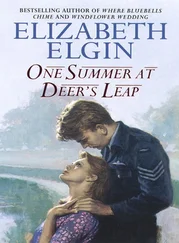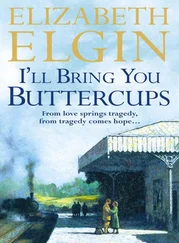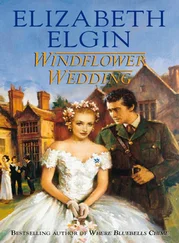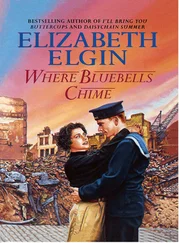She had thought, on first seeing the photograph, that he hadn’t a lot going for him as far as looks were concerned, but that maybe he had a kind heart to make up for it, and a protective nature – and was good at lovemaking. Not that she would so much as dream of asking Lorna about her private life, but of one thing she was certain. If tonight’s phone call was anything to go by, William had a peevish side to his nature, and what had possessed Lorna to marry him only Lorna knew, because it was obvious she wasn’t without means. She owned Ladybower House, which must be worth a pretty penny. Five bedrooms and two lavvies, would you believe, and no end of a big garden. And she wouldn’t be surprised if Lorna’s grandad hadn’t left her a few pounds besides!
I mean, she reasoned silently into the darkness, Lorna is quite pretty. Lorna could be better than pretty if she did something about that ridiculous mop of frizz she called hair. Pale blonde it was, and naturally curly, but there was much too much of it. You noticed the mass of hair before you noticed the girl and how blue her eyes were and how beautiful the bones of her face were. Ness’s cutting fingers ached to get at that hair, sort it out, shape it properly so it laid soft and close to her head. Lorna’s hair needed a short style; one she could comb with her fingers; a style she could wash in rainwater from the tub at the back door – a beauty treatment in itself – and leave to dry naturally without any rubbing or towelling or even, heaven forbid, drying it in front of the fire.
And after she had tamed that tangled mass, Ness thought gleefully, something ought to be done about those eyebrows. There was a beautiful arch to them, but did Lorna have to let them meet at the top of her nose? A little tidying here and there, and they would be a perfect foil for those deep blue eyes. But William, Lorna had said, liked his wife’s hair long, and if Lorna was content to drag a wire brush through it and bring tears to her eyes in the process, then it was nothing to do with Ness Nightingale.
‘Night night,’ she sighed, snuggling into the blankets, wondering if Lorna was asleep, knowing she was not. Worrying, like as not, about that husband of hers, arrogant sod that he was! ‘Sleep tight, queen …’
Lorna was not asleep. She was, as was to be expected, wide awake and thinking things out. But she was not worrying because as far as she was concerned, there was nothing to worry about. She had taken a land girl into her home, which was the patriotic thing to do, and William had flown off the handle, would you believe; William, who was usually so unflappable and understanding and kind, just as Grandpa had been. One of the good things about her husband had been his similarity to her lovely Grandpa, who had been father, mother and best friend to her for as long as she could remember. But tonight William had been very annoyed. For the first time in their married life he had shouted at her as if she were a stupid recruit with two left feet and he a drill-sergeant, bawling at the top of his voice at an imbecile.
William had bawled as if he were giving orders, and it wasn’t a bit like the William who usually smoothed her path and sheltered her – metaphorically, that was – so that even the wind should not blow on her, and made her smile if anything dismayed or upset her. So there must be an excuse for such strange behaviour. He was lonely and missing his wife and home and the ordered familiarity of his profession. And it couldn’t be easy, going from civilian life to the hurly-burly of the Army; taking orders, too, instead of giving them. Because William was only a lieutenant; an officer, certainly, but a junior one, who would be expected to salute his superiors and call them Sir! Poor William.
Her pillows had become quite hot – from her indignation, no doubt – so she plumped and turned them then walked to the window, carefully drawing the curtains, pulling aside the blackout. Then she pushed the window wide and leaned on her elbows, gazing down into the garden, making out the denser dark of the trees that circled it and the rounded shapes that were banks of rose bushes.
In June, total darkness was a long time coming; the extra hour of daylight took care of that. At this time of the year, you could walk round Ainsty at almost eleven at night and not bump into anything or miss your footing on an unseen kerb edge.
Now, the garden below her took on a mysterious, half-hidden quality and the wood behind – Dickon’s Wood – became strange and enchanted and ripe for haunting because surely on nights such as this, on breathless, half-asleep nights, did Ursula come to meet the man who loved her and waited for her. Surely, if the nun’s ghost did exist, it would walk tonight. But ghosts glided. Ghosts wraithed and drifted then disappeared into nothing. Ghosts didn’t walk like real people – did they?
‘Goodnight Ursula and Dickon,’ she smiled, covering the window again, turning on the light at her bedside. ‘And goodnight William, my dear. Take care of yourself. I know you didn’t mean to be angry on the phone. Don’t worry. Everything will turn out right …’
Of course it would! Ness was staying, and that was the end of it!
Ness closed the gate gently and without sound. She had risen extra early then hurried into the morning, eager to be at Glebe Farm for the first day of haymaking. She sniffed in air still moist with early dew, wanted to hug herself with joy at the beauty of this tiny place, so hidden away from the war. All around, birds sang; everywhere was greenness and flowers and a sky brightening to summer blue as the sun rose to light it.
‘Hey! Wait on, lass!’ Ness turned to see Martha Hugwitty bearing down on her, and smiled a welcome.
‘Morning, Miss Hugwitty. Isn’t this goin’ to be a lovely day?’
‘No, it isn’t. It’ll be hot and dusty and hard work. And me name’s Martha.’
‘Hot and dusty in the field, you mean?’
‘Oh my word, yes. They’ll be stripped down to bare chests in no time at all. Can’t make hay in the cool and wet, see. Got to be dry and sunny. I’m glad you’re here, Ness. You can take water to the field for the workers – save my old legs. What made you want to leave Liverpool, then?’ The question was direct and unexpected.
‘We-e-ll – why not? Always fancied living in the country,’ Ness hedged. ‘People say that women will be called up like the men before so very much longer, so I thought if I volunteered I could go where I wanted.’
‘And what are you running away from, lass?’
‘ Me ? Runnin’? Nuthin’!’ Her indignation was showing; protesting too much she reminded herself, regaining her composure. ‘Why do you think I’m running away? Robbed a bank, have I?’
‘Now did I say that? Did I? All I meant was that a young and bonny lass like you shouldn’t want to bury herself in a place like this. Isn’t natural. There’s no picture palaces here, nor dance halls. Wasn’t suggesting nothing criminal.’
‘Well that’s all right then, isn’t it? I just fancied a change and like I said, women are goin’ to get called up before so very much longer, I’d bet on it!’
‘Never! Women aren’t built for fighting wars! A woman’s place is at home, cooking and having children. Men can’t have children so they do the fighting.’
‘So what were those women doin’ that travelled to York on the train with me, then? In the Air Force, they were, and in uniform. And there are women in the Army and the Navy. There’s a lot of Wrens in Liverpewl, it bein’ a port. Seen them with my own eyes.’
‘Happen so.’ It was all Martha could think of to say. The land girl was telling nothing – not this morning, at least. But she would find out sooner rather than later why a good-looking young woman like Ness seemed intent on burying herself in the country. A man behind it, was there, or maybe she really had robbed a bank? ‘Mornin’, Kate lass,’ she called to the farmer’s wife who stood at the back gate. ‘Nice day for it!’
Читать дальше












